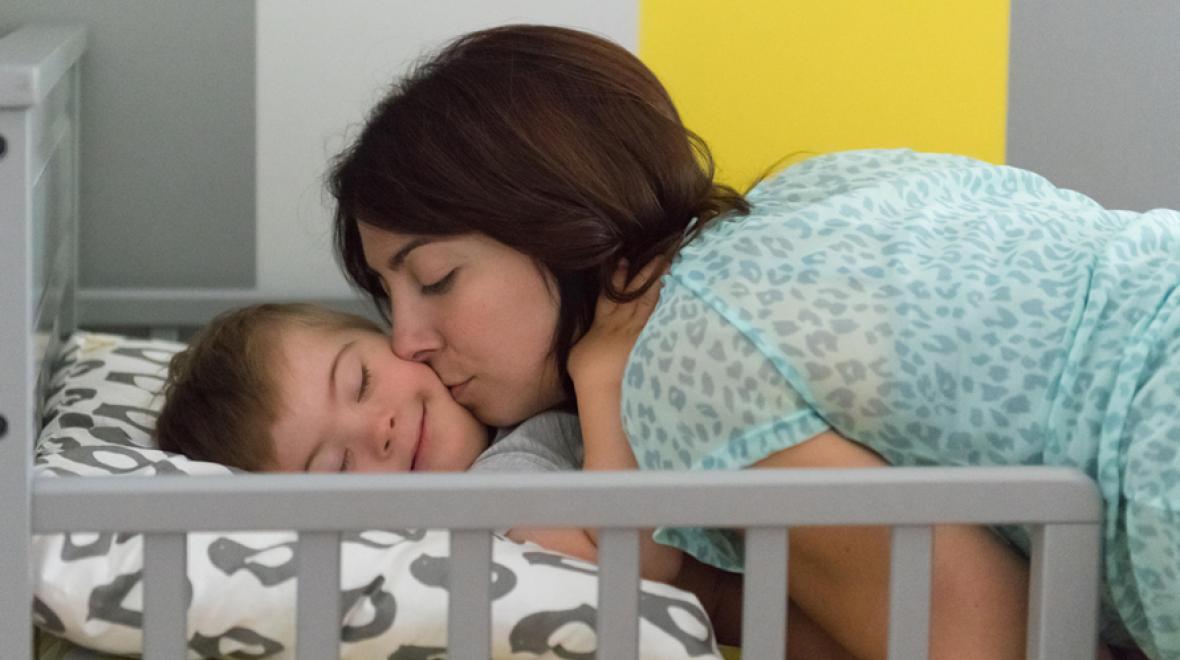What Are Your Co-Parenting Rights After Divorce?
Understanding your co-parenting rights after divorce is essential. Establish clear communication and legal documentation for custody, decision-making, and financial obligations. Focus on joint custody for stability, and consider shared responsibilities. Guarantee visitation schedules are consistent. Collaborative decision-making and respect are key. Knowing dispute resolution options can aid in conflicts. Develop a thorough parenting plan. Seek legal guidance for modifications and enforcement. Prioritize children’s well-being for a harmonious co-parenting relationship. These steps can create a solid foundation post-divorce.
Key Takeaways
- Clear communication and understanding of legal rights are crucial for co-parenting post-divorce.
- Setting boundaries is essential for maintaining a healthy co-parenting relationship.
- Establish guidelines on visitation schedules, decision-making, and finances to protect your rights.
- Effective parenting communication helps prevent conflicts and promotes a cooperative environment.
- Regular updates on children’s activities foster a supportive and harmonious co-parenting relationship.
Legal Framework for Co-Parenting

Understanding the legal framework for co-parenting is essential for successfully managing post-divorce arrangements and ensuring both parents’ rights are protected. Co-parenting counseling can assist in maneuvering this intricate terrain, helping parents communicate effectively and make decisions in the best interests of their children.
Legal documentation plays a pivotal role in outlining rights and responsibilities, including custody agreements, visitation schedules, and decision-making authority.
During co-parenting counseling sessions, you can learn about your legal rights and obligations as a co-parent post-divorce. These sessions provide a safe space to address concerns, develop a co-parenting plan, and establish effective communication strategies.
Additionally, legal documentation such as parenting plans and court orders formalize the co-parenting arrangement, ensuring clarity and accountability for both parties.
Custody Arrangements and Schedules

When it comes to custody arrangements and schedules post-divorce, focusing on joint custody benefits both you and your child, allowing for shared responsibilities and decision-making.
Establishing consistent visitation schedules can provide stability and routine, fostering a sense of security for your child during this change.
Finding a balance that works for both parents guarantees that the child’s best interests remain a top priority.
Joint Custody Benefits
Numerous studies have shown that children benefit greatly from joint custody arrangements, which provide them with stability and consistent involvement from both parents. Co-parenting teamwork is essential in shared responsibilities to make sure that children receive the emotional support, guidance, and care they need. By fostering a cooperative relationship with your ex-spouse, you can create a positive environment where your children feel secure and loved.
In joint custody arrangements, both parents play an active role in decision-making, parenting responsibilities, and daily care routines. This shared involvement allows children to maintain strong bonds with both parents, promoting a sense of security and well-being. Children benefit from having access to the love, attention, and guidance of both parents, which can positively impact their emotional development and overall adjustment to the divorce.
Through effective communication, flexibility, and a focus on the best interests of the children, joint custody arrangements can provide a supportive and nurturing environment that helps children thrive despite the challenges of divorce.
Consistent Visitation Schedules
In crafting consistent visitation schedules for your children post-divorce, maintaining a structured routine is key to providing them with stability and predictability in their changing family dynamics.
Visitation flexibility is vital to accommodate unforeseen circumstances, but establishing clear co-parenting boundaries helps avoid confusion and conflict.
Shared activities during visitation periods can foster positive parent-child relationships and create lasting memories.
Consistency in visitation schedules not only benefits your children but also contributes to effective co-parenting by establishing a sense of reliability and trust between parents.
By adhering to a consistent routine, you can help your children adjust to the new normal after divorce while promoting a sense of security and routine in their lives.
Remember that open communication with your co-parent is important to make sure that visitation schedules meet the needs of your children and respect both parents’ roles in their upbringing.
Decision-Making Authority

Having clear decision-making authority is vital for successful co-parenting after divorce. When it comes to parenting decisions, having a well-defined plan for shared responsibilities can help avoid conflicts and ensure a smoother co-parenting journey.
It’s essential to establish who’s the authority to make decisions regarding important aspects of your child’s life, such as education, healthcare, extracurricular activities, and religious upbringing.
To navigate this effectively, consider creating a parenting agreement that outlines how these decisions will be made collaboratively or by one parent with the other’s input.
Open communication and mutual respect are key in honoring each other’s roles and responsibilities as parents post-divorce. Remember that shared decision-making doesn’t mean you’ll always agree, but it does require a willingness to compromise and prioritize your child’s well-being above all else.
Child Support Obligations
Establishing clear child support obligations is an essential aspect of co-parenting dynamics post-divorce, ensuring financial stability for the child and fostering a cooperative co-parenting relationship. Child support guidelines are typically determined based on state laws and take into account factors such as each parent’s income, the child’s needs, and the custody arrangement. It’s important to understand your financial responsibilities towards your child and fulfill them diligently.
Child support guidelines vary from state to state, so it’s critical to familiarize yourself with the specific regulations in your area. These guidelines aim to provide a fair and consistent framework for determining the financial support each parent should contribute to the upbringing of their child. By adhering to these guidelines, you can help secure your child’s well-being and ensure that their financial needs are met.
Remember that meeting your child support obligations isn’t just a legal requirement but also a moral responsibility towards your child’s upbringing. By fulfilling your financial responsibilities, you can demonstrate your commitment to supporting your child even after the divorce.
Visitation Rights and Responsibilities
Understanding the intricacies of visitation rights and responsibilities is essential for successfully managing post-divorce co-parenting arrangements. Establishing clear visitation schedules that consider both parents’ availability and the child’s needs is vital. It’s important to create a routine that works for everyone, including special arrangements for holidays and school breaks. By adhering to these schedules, you can guarantee consistency and stability for your child.
Co-parenting responsibilities extend to fostering open communication between both parents. Keeping each other informed about any changes in plans or the child’s well-being is key to a successful co-parenting relationship. Effective communication can help prevent misunderstandings and reduce conflicts, ultimately benefiting your child’s emotional well-being.
Remember that visitation rights come with corresponding responsibilities. Being punctual, respectful, and cooperative during exchanges sets a positive example for your child and contributes to a harmonious co-parenting dynamic. By prioritizing your child’s best interests and maintaining open lines of communication, you can navigate visitation rights and responsibilities with empathy and understanding.
Communication Guidelines With Ex-Spouse

Effective communication with your ex-spouse is vital for successful co-parenting post-divorce. Establishing clear communication boundaries from the start can help in maintaining a healthy co-parenting relationship. It’s essential to set mutual respect as a cornerstone for all interactions. By respecting each other’s opinions and decisions, you can create a more harmonious co-parenting dynamic.
Conflict resolution is another critical aspect of maintaining effective communication with your ex-spouse. When disagreements arise, approach them with a focus on finding solutions that are in the best interest of your children. Keeping communication channels open and addressing conflicts in a calm and respectful manner can help prevent misunderstandings from escalating.
Healthy co-parenting thrives on effective communication. Regularly updating each other on important matters concerning your children can foster a sense of teamwork and collaboration. Remember, the ultimate goal is to provide a stable and nurturing environment for your children, and clear, respectful communication with your ex-spouse is key to achieving this.
Dispute Resolution Mechanisms
When managing co-parenting post-divorce, understanding dispute resolution mechanisms can be essential.
Mediation offers a collaborative approach to resolving conflicts, allowing both parties to have a say in the outcome.
Alternatively, arbitration provides a more structured process where a neutral third party makes decisions if you and your ex-spouse can’t reach an agreement.
Mediation for Disputes
In addressing co-parenting disputes post-divorce, turning to mediation as a resolution mechanism can provide a structured and collaborative approach for both parties.
When dealing with the complexities of co-parenting dynamics, conflict resolution is essential for fostering a healthy environment for your children.
Mediation strategies offer a platform where both you and your ex-spouse can voice concerns, express needs, and work towards mutually beneficial solutions.
Effective communication lies at the heart of successful mediation sessions. By actively listening to each other’s perspectives and communicating openly and honestly, you can begin to rebuild trust and find common ground.
During mediation, a neutral third party facilitates discussions, ensuring that the focus remains on finding solutions rather than escalating disagreements.
This process allows you to address specific issues such as visitation schedules, financial responsibilities, or parenting styles in a controlled and respectful setting.
Arbitration as Alternative
Consider utilizing arbitration as an alternative dispute resolution mechanism to navigate co-parenting disagreements post-divorce. When differences in parenting styles and communication methods arise, arbitration provides a structured approach to resolving conflicts effectively.
This process involves a neutral third party, the arbitrator, who listens to both sides and facilitates reaching a mutually acceptable outcome. By engaging in arbitration, you and your co-parent can address specific issues that require resolution without the formality of a courtroom setting.
Arbitration encourages conflict resolution through open communication and the exploration of compromises that align with the best interests of your children. This method allows for more flexibility in decision-making compared to traditional litigation and often leads to quicker resolutions.
Parenting Plan Requirements
Developing a thorough parenting plan post-divorce is essential for establishing clear guidelines and expectations for co-parenting responsibilities. When creating a parenting plan, it’s beneficial to contemplate attending co-parenting workshops or seeking legal assistance to guarantee that all aspects of the arrangement are carefully contemplated. These resources can provide valuable insights into effective communication strategies, conflict resolution techniques, and child-centered decision-making.
Parenting plan mediation can also be a helpful tool in reaching agreements with your co-parent. Through mediation, a neutral third party can assist in facilitating discussions and negotiations to develop a plan that works best for both parties and, most importantly, for the well-being of the children involved.
Once a parenting plan is finalized, it may need to be approved by the court to ensure that it complies with legal requirements and serves the best interests of the children. Seeking legal guidance throughout this process can help navigate any complex legal nuances and make certain that the parenting plan meets all necessary criteria for court approval.
Modifying Co-Parenting Agreements

When it comes to modifying co-parenting agreements, remember that court-approved changes may be necessary to guarantee the legality of any adjustments.
Mediation can be a valuable tool in helping you and your co-parent navigate modifications collaboratively and peacefully.
Stay informed about the process of making parenting plan adjustments to protect your rights and the well-being of your children.
Court-Approved Changes
Making adjustments to co-parenting agreements through the court system can be an important step to guarantee that the needs and circumstances of both parents and children are appropriately addressed. When seeking custody modifications, it’s vital to understand the court procedures involved in altering existing co-parenting arrangements.
Your co-parenting rights are protected by legal documentation that outlines the terms of the original agreement, providing a foundation for any proposed changes.
To initiate the process of court-approved changes, you may need to file a formal request detailing the modifications you’re seeking and the reasons behind them. The court will then review the request, taking into consideration the best interests of the children involved. It’s advisable to work closely with your legal counsel to make sure that all necessary steps are followed accurately.
Remember that court-approved changes to co-parenting agreements are legally binding, so it’s important to approach this process thoughtfully and with a focus on the well-being of your children. By following the court procedures diligently and respecting each parent’s co-parenting rights, you can work towards creating a revised agreement that better suits the current circumstances.
Mediation for Modifications
Consider engaging in mediation as a collaborative approach to modifying co-parenting agreements after divorce. When circumstances change or issues arise that require adjustments to the parenting plan or custody arrangements, mediation can offer a more cooperative and less adversarial way to address these modifications.
In mediation, both parents work with a neutral third-party mediator to negotiate changes to the existing parenting plan. This process allows for open communication, problem-solving, and the opportunity to tailor solutions that suit the best interests of the children involved.
Mediation for custody modifications can be particularly beneficial when both parents are willing to work together but need assistance in reaching mutually agreeable terms. It provides a structured environment for discussing concerns, exploring options, and ultimately reaching a revised agreement that meets the evolving needs of the family.
Parenting Plan Adjustments
Exploring potential adjustments to your parenting plan post-divorce requires careful consideration and clear communication between both co-parents.
When considering modifications to your co-parenting agreement, it’s important to revisit and clearly define co-parenting boundaries. Establishing these boundaries will help maintain a healthy co-parenting relationship and make sure that both parties are on the same page regarding parenting responsibilities.
Flexibility in schedules is another key aspect to focus on when adjusting your parenting plan. Life is dynamic, and schedules may need to adapt to accommodate changing circumstances. Being open to adjusting schedules when necessary can help prevent conflicts and promote a more harmonious co-parenting dynamic.
Enforcing Co-Parenting Rights

Enforcing your co-parenting rights after divorce requires clear communication and a thorough understanding of your legal rights and responsibilities. Setting co-parenting boundaries is essential for maintaining a healthy relationship with your ex-spouse and ensuring the well-being of your children.
It’s vital to establish clear guidelines on visitation schedules, decision-making processes, and financial responsibilities. Effective parenting communication is key to resolving conflicts and preventing misunderstandings. Regularly updating each other on your children’s activities, school events, and health issues can help foster a cooperative co-parenting environment.
If you encounter difficulties in enforcing your co-parenting rights, consider seeking legal advice to understand your options. Documenting any violations of the co-parenting agreement can strengthen your case if legal intervention becomes necessary. Remember that the ultimate goal is to prioritize the best interests of your children and provide them with a stable and loving environment despite the challenges of co-parenting after divorce.
Frequently Asked Questions
Can I Bring a New Partner Around My Children?
You should consider new partner boundaries carefully, ensuring your child’s comfort comes first. Introducing them slowly and gauging reactions can help maintain stability. Communication with your ex-spouse about these decisions is vital.
How Do I Handle Holidays and Special Occasions?
When handling holidays and special occasions after divorce, it is crucial to prioritize joint celebrations and clear communication. Establish new traditions while respecting boundaries. Prioritize the well-being of the children and guarantee inclusivity for all.
What Happens if My Ex-Spouse Relocates?
When your ex-spouse relocates, it can impact custody arrangements and have legal implications. Maintaining open communication and shared decision-making is essential. Consider consulting your lawyer to understand your rights and responsibilities in this situation.
Can I Request a Change in My Child’s School?
You can request a change in your child’s school through a legal process. Start by discussing this with your ex-spouse. Communication is crucial in managing such decisions to guarantee the best outcome for your child.
How Do We Handle Introducing New Significant Others to the Children?
When introducing new partners to your children post-divorce, set clear communication boundaries with your co-parent. Prioritize the child’s perspective by approaching the situation with sensitivity and openness. Consistent dialogue and mutual respect are crucial.
Conclusion
In summary, managing co-parenting rights after divorce can be complex and emotionally challenging. It’s important to understand the legal framework, establish clear custody arrangements, and communicate effectively with your co-parent.
Remember to prioritize the best interests of your children and seek professional guidance if needed. By following the guidelines outlined in this article, you can guarantee a successful co-parenting relationship for the benefit of your children.

Chad Adan Kace, a young dad from Vermont, shares his parenting journey with a touch of humor and lots of love. Father to a lively baby, he explores the joys and challenges of fatherhood through his stories.







